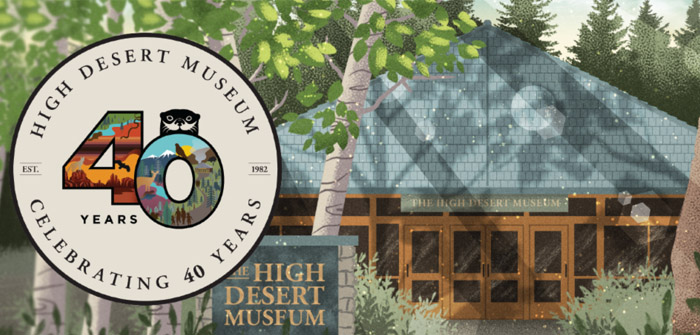(Photo | Courtesy of High Desert Museum)
In the wake of a disaster, what would home look like? The question lies at the center of a new exhibit coming to the High Desert Museum, Survival Architecture and the Art of Resilience. It features the ideas of artists, designers and engineers looking to the future and considering what human shelters might look like in the face of challenges.
Survival Architecture and the Art of Resilience, opening Saturday, October 15, is a traveling exhibit organized and curated by the Oakland, California-based nonprofit Art Works for Change. In moments of change, what constitutes a home might evolve quickly. The exhibit features the work of artists and designers drawn from around the world whose design innovations – high-tech and low-tech, extravagant and affordable – are meant for helping individuals adapt during turbulent times. By combining science, technology, architecture and art, the exhibit encourages us to consider notions of safety and security.
“Our communities are not immune to changes, as environmental shifts are affecting the High Desert, too, including extreme wildfire and drought,” said Museum Donald M. Kerr Curator of Natural History Hayley Brazier. “Yet human resilience is a central theme that I hope visitors will see in Survival Architecture.”
Survival Architecture showcases two- and three-dimensional designs from four perspectives – circular, portability, visionary and resilience. Circular structures are created from materials that can be reused indefinitely. Portability makes designs versatile. The exhibit highlights visionary concepts that address the way we think about shelters in the face of climate change. The resilience of designs is also examined, as some objects can adapt to dynamic environments.
In the exhibit, film and photographs depicting the effects of environmental stresses on traditionally designed architecture are shown alongside innovative solutions with common materials such as cardboard and aluminum. For instance, Survival Architecture includes a piece by Tina Hovespian titled Cardborigami. The unique, three-dimensional structure is a shelter big enough for two people, sustainable and naturally insulated.
“Survival Architecture and the Art of Resilience explores varied perspectives, as well as ideas and design concepts for how people can respond to any number of challenges,” said Museum Executive Director Dana Whitelaw, Ph.D. “For visitors, we hope it will spark dialogue about what the future of the High Desert region might look like.”
Survival Architecture and the Art of Resilience (highdesertmuseum.org/survival-architecture) will be on display through January 8, 2023. The exhibit is possible with support from Wall Street Suites and the James F. and Marion L. Miller Foundation.





